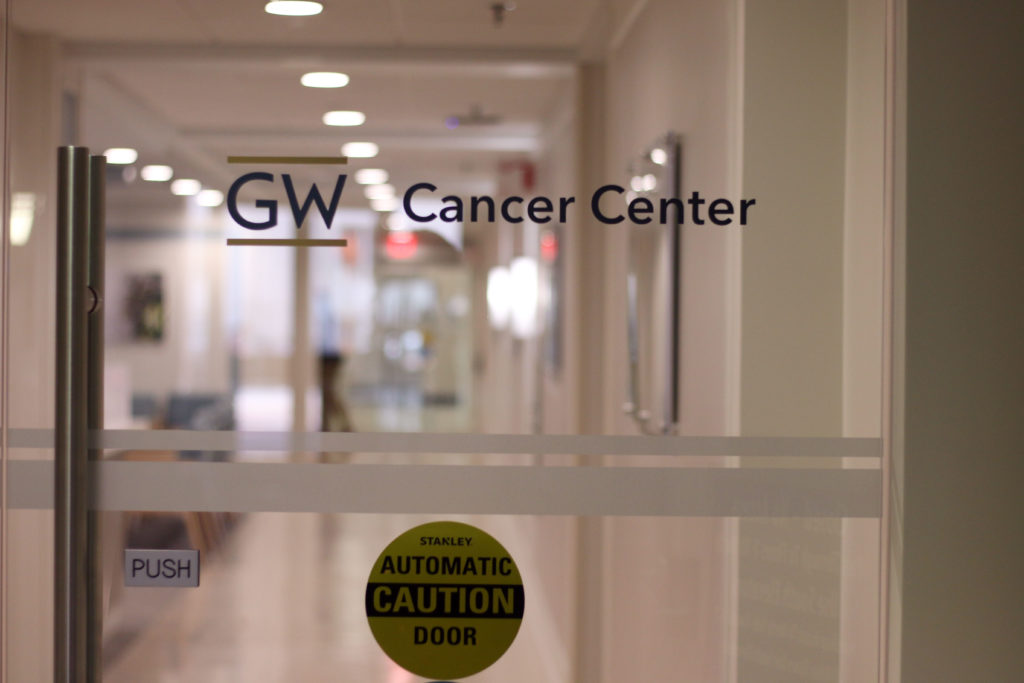Updated: April 19, 2019 at 12:33 p.m.
More than seven months after GW Cancer Center officials announced they were pursuing a coveted grant from the National Cancer Institute, officials said they are set to achieve the grant by 2025.
NCI grants are awarded to cancer centers that consistently produce in-depth interdisciplinary research and invest in new research and treatment spaces, according to the NCI website. Medical school administrators said the center is delaying its application for the fund because officials first want to expand the institute’s number of published interdisciplinary research projects.
Medical school spokeswoman Lisa Anderson said cancer centers must meet several requirements to qualify for the grant, like funding in-depth research projects and employing experienced researchers to lead the center.
She said the GW Cancer Center has already taken steps in the past six months to meet the grant requirements, like adding a new cancer treatment space to the GW Medical Faculty Associates Ambulatory Care Center in October and creating multidisciplinary research teams this year to investigate skin and gastrointestinal cancer treatments.
“The main challenge is creating the right building blocks and being strategic in our efforts so we grow in the right direction,” she said in an email.
She said the grant will attract patients and renowned scientists to the GW Cancer Center, which will enhance the center’s reputation and improve the quality of patient care the center can provide.
“So far, we have been successful in getting the needed resources to address these characteristics,” she said. “We are already making a lot of progress in these areas.”
Robert Siegel, a professor of medicine, said the school is currently looking to expand its collaborative research projects and partner with the GW Hospital and the Milken Institute School of Public Health.
Siegel said the center still needs to develop strong research programs that focus on all types of cancers, maintain high-quality clinical care and hire more physicians to develop and lead the programs – all of which require significant funding.
“I mean, if we apply now, we would be unsuccessful,” Siegel said.
Siegel said officials should hire additional researchers and establish new lab spaces to bolster the center’s research programs. He added that the grant would help the center fund cancer screenings and treatments for residents with limited access to health care.
“Certainly, it would be a really exciting thing for me to be part of an enterprise that is nationally recognized not only for its good clinical care but for its research and for helping the underserved,” he said.
Rachel Evans, a spokeswoman for NCI, said NCI-designated cancer centers often contribute to breakthrough research in cancer prevention, diagnosis and therapy. She said that once a center receives the grant, they are able to easily contact other NCI-funded programs to facilitate research endeavors.
“They contribute significantly to the development of shared resources that support cancer-relevant research, and they collaborate and coordinate their research efforts with other NCI-funded programs and investigators,” Evans said in an email.
This post was updated to reflect the following changes:
A previous version of this post stated that the Cancer Center will apply for the NCI grant by 2025. The center plans to obtain the grant by 2025. The Hatchet also incorrectly reported that the center had initially planned to apply for the grant in 2016. We regret these errors.
Information attributed to Robert Siegel was also updated to note the medical school’s current efforts to partner with the public health school and the GW Hospital.





